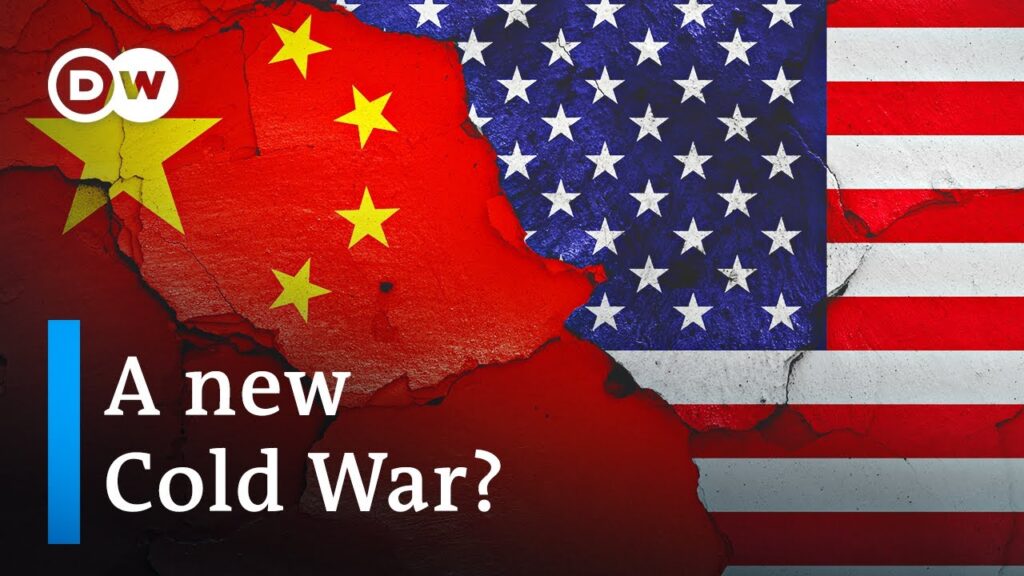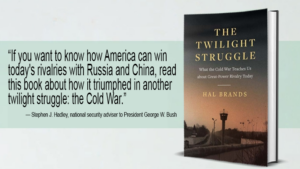
CREDIT: DEUTSCHE WELLE SCREEN GRAB
Although some aspects of the Cold War hold true today, such as the geopolitical rivalry between two powerful countries with dramatically different political systems and ideologies, the integration and interdependence that characterize the international system in this century places today’s policymakers on a vastly different landscape than the one their twentieth-century predecessors navigated, say CSIS experts Jude Blanchette and Christopher Johnstone.
The competition that confronts the United States is not simply a bilateral contest with another great power. Nor is it one that pits cleanly demarcated authoritarian and democratic blocs against one another, they write for Foreign Affairs:
 It is instead an ever-shifting competition of coalitions and of informal and often ad hoc groupings of partners that come together to address a specific issue or set of issues. As Hal Brands (right) and Zack Cooper noted in 2020, these coalitions differ depending on the issue at hand; the partners involved in the geopolitical balancing of China’s growing military power in the western Pacific may be different from those that partner to safeguard and promote advanced technologies.
It is instead an ever-shifting competition of coalitions and of informal and often ad hoc groupings of partners that come together to address a specific issue or set of issues. As Hal Brands (right) and Zack Cooper noted in 2020, these coalitions differ depending on the issue at hand; the partners involved in the geopolitical balancing of China’s growing military power in the western Pacific may be different from those that partner to safeguard and promote advanced technologies.
Beijing’s aggressiveness has caused many analysts to conclude that a new Cold War has broken out between China and the United States, adds Carl Gershman, founding president of the National Endowment for Democracy (NED).
The Biden Administration has acknowledged as much, at least implicitly, when it asserted in its latest National Security Strategy that the “post–Cold War era is definitively over and a competition is underway between the major powers to shape what comes next.”
Three basic policy concepts that guided the West during the Cold War remain particularly relevant today to defending Taiwan—the epicenter of the U.S.-China confrontation, he writes for the Journal of Democracy.:
- The first is the concept of containment that the United States carried out through a comprehensive and vigilant policy of military deterrence designed to prevent Soviet expansion and keep the Cold War from becoming hot.
- The second is the concept of “mellowing,” which George Kennan described in his famous “X essay” in Foreign Affairs as the process by which the inherent flaws of the closed Soviet system would gradually erode the regime’s ability to maintain absolute control.
- The third is the battle of ideas, which is the political and ideological competition between democratic and totalitarian systems.
The competition that confronts the US is not simply a bilateral contest that pits cleanly demarcated #authoritarian and #democratic blocs against one another, @CSIS experts #JudeBlanchette & #ChristopherJohnstone write for @ForeignAffairs. https://t.co/cXkwv0LMGY
— Democracy Digest (@demdigest) July 24, 2023







